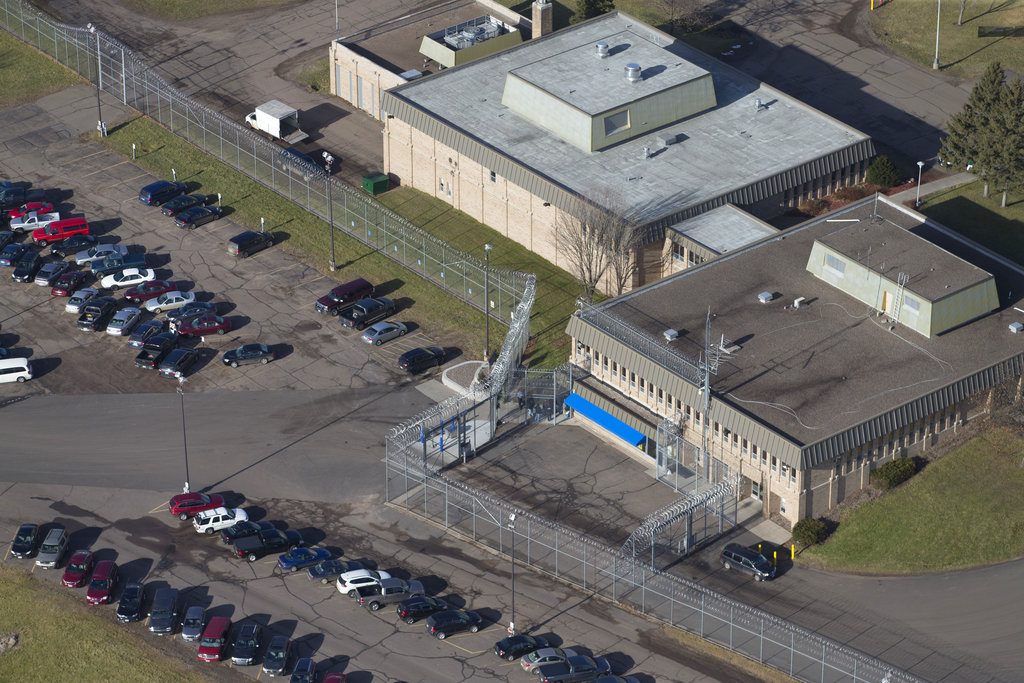Judge orders changes at juvenile prisons (UPDATE)
By: Associated Press//June 23, 2017//

By SCOTT BAUER
Associated Press
MADISON, Wis. (AP) — A federal judge issued a stinging rebuke Friday of disciplinary practices at Wisconsin’s youth prisons, saying state officials have demonstrated a “callous indifference” to the harm caused to juvenile inmates by the use of solitary confinement, pepper spray and shackles.
Those tactics used at the Lincoln Hills and Copper Lake prisons likely amount to unconstitutional cruel and unusual punishment and are outside the national norms for juvenile corrections, U.S. District Judge James Peterson said.
“Ted Kaczynski has less restrictive solitary confinement than youth at Lincoln Hills,” the judge said, referring to the convicted killer known as the Unabomber.
Attorneys for the American Civil Liberties Union and Juvenile Law Center had asked Peterson to immediately ban solitary confinement, pepper spray and the use of shackles at the Lincoln Hills and Copper Lake prisons located about 155 miles north of Madison. Corrections officials argued doing that could put the safety of inmates and staff at harm.
Peterson did not immediately halt the practices, but instead ordered the state Department of Corrections and attorneys who challenged the tactics to agree within two weeks to a series of changes he outlined in court.
Corrections spokesman Tristan Cook said the department “has consistently worked to identify and implement substantial reforms” at the juvenile prisons and looked forward to continuing those efforts. He said Corrections Secretary Jon Litscher has “full confidence” that necessary reforms will be made.
Peterson said solitary confinement poses “acute, immediate and enduring” harm to the inmates and ordered several changes. If it is to be used, Peterson said sentences must be shortened to national norms no longer than five or seven days. He left it up to the attorneys to determine the exact length.
Peterson also said inmates in solitary confinement must be allowed out of it at least one to four hours every day without being shackled or barred from interacting with other inmates. They must also be given adequate opportunity for exercise, access to programming and stimulation while in isolation other than just one book that’s currently allowed, he said.
“The idea that one book is enough stimulation is frankly outlandish,” Peterson said.
The judge also said there is excessive use of pepper spray to control inmates and given that 90 percent of states don’t allow it, Wisconsin’s argument that it’s needed “just doesn’t hold water in light of what’s going on nationally.”
He ordered that its use be more narrowly defined but said Lincoln Hills doesn’t currently have any good alternatives.
The judge further ordered that restraints could be used for safety, but that has to be determined on a case-by-case basis. The prison can no longer routinely require inmates who are in isolation to be shackled when they are outside of their cell, he said.
Federal investigators for more than two years have been probing allegations of widespread inmate abuse at the prisons. No one has been charged.
ACLU attorney Larry Dupuis said in closing arguments that all three of the disciplinary tactics at issue were counterproductive and “thwart rehabilitation.” The superintendent and security director at the juvenile prisons both testified that they are trying to reduce the use of the tactics, but they are all sometimes necessary to maintain security of both the staff and inmates.
Department of Corrections attorney Sam Hall acknowledged that the disciplinary tactics were harmful to the residents but said there is no conscious disregard for the safety of the inmates. Prison officials are trying to reduce the use of the tactics but ending them immediately would jeopardize safety, he said.
“We’re headed in the same direction, we have the same goals in mind, the question is how do we get there?” Hall said. “We are starting to see some change at Lincoln Hills, some good positive signs.”
But the judge wasn’t convinced.
“The defendants have completely failed to show that Lincoln Hills is in the process of reform that is driven in any meaningful way by the defendants themselves,” Peterson said. Because of that, the judge said he had to act because it’s not appropriate to let Lincoln Hills “reform itself.”
Legal News
- Wisconsin attorney loses law license, ordered to pay $16K fine
- Former Wisconsin police officer charged with 5 bestiality felony counts
- Judge reject’s Trump’s bid for a new trial in $83.3 million E. Jean Carroll defamation case
- Dozens of deaths reveal risks of injecting sedatives into people restrained by police
- The Latest: Supreme Court arguments conclude in Trump immunity case
- Net neutrality restored as FCC votes to regulate internet providers
- Wisconsin Attorney General asks Congress to expand reproductive health services
- Attorney General Kaul releases update at three-year anniversary of clergy and faith leader abuse initiative
- State Bar leaders remain deeply divided over special purpose trust
- Former Wisconsin college chancellor fired over porn career is fighting to keep his faculty post
- Pecker says he pledged to be Trump campaign’s ‘eyes and ears’ during 2016 race
- A conservative quest to limit diversity programs gains momentum in states
WLJ People
- Power 30 Personal Injury Attorneys – Russell Nicolet
- Power 30 Personal Injury Attorneys – Benjamin Nicolet
- Power 30 Personal Injury Attorneys – Dustin T. Woehl
- Power 30 Personal Injury Attorneys – Katherine Metzger
- Power 30 Personal Injury Attorneys – Joseph Ryan
- Power 30 Personal Injury Attorneys – James M. Ryan
- Power 30 Personal Injury Attorneys – Dana Wachs
- Power 30 Personal Injury Attorneys – Mark L. Thomsen
- Power 30 Personal Injury Attorneys – Matthew Lein
- Power 30 Personal Injury Attorneys – Jeffrey A. Pitman
- Power 30 Personal Injury Attorneys – William Pemberton
- Power 30 Personal Injury Attorneys – Howard S. Sicula











